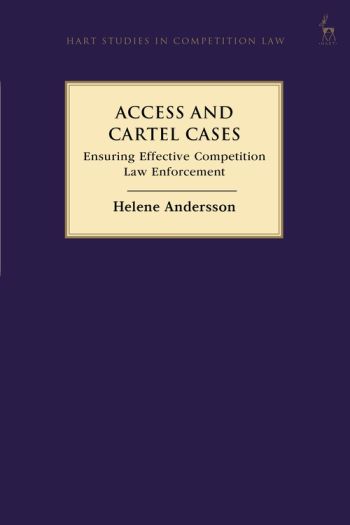We are now closed for the Christmas and New Year period, returning on Monday 5th January 2026. Orders placed during this time will be processed upon our return on 5th January.

This book examines the legislative patchwork surrounding access to the European Commission's cartel case files.
Recent legislative changes have increased the value of the files and have also highlighted the inherent tension between a number of competing interests affecting their accessibility. The Commission is undoubtedly caught between a rock and a hard place, charged with the task to ensure due process, transparency and effectiveness while at the same time promoting both public and private enforcement of the EU competition rules. The author considers how best to ensure a proper balance between the legitimate, but often diverging interests of parties, third parties and national competition authorities in these cases.
The book provides a unique and comprehensive presentation of the EU legislation and case law surrounding access to the Commission's cartel case files. The author examines the question of accessibility from three different perspectives: that of the parties under investigation, cartel victims, and national competition authorities. The author also considers the EU leniency system and whether any legislative changes could make the attractiveness of the system less dependent on the possibilities of cartel victims to access the evidence contained in the Commission's case files.